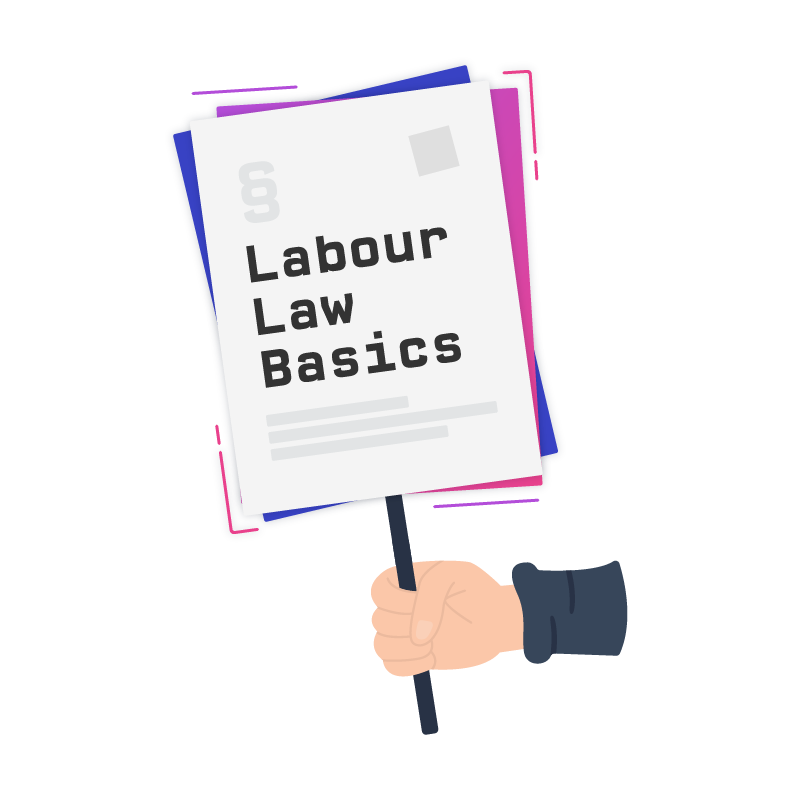Labour Law Basics

Job Security Is Good and Makes You Better.
All relevant regulations concerning dismissal are based on the German Civil Code (Bürgerliches Gesetzbuch, BGB) and the Protection against Dismissal Act (Kündigungsschutzgesetz, KSchG.) The latter only applies to workplaces with eleven or more employees. In smaller businesses, the dismissal notice period is specified in individual employment contracts. Here, too, employers must exercise appropriate social consideration (soziale Rücksichtnahme), i.e., consider the social circumstances and repercussions of dismissal, according to the German Federal Labor Court (Bundesarbeitsgericht.)
Grounds for Dismissal
In companies where statutory job protections apply, employers must justify every dismissal. There are three categories:
- Dismissal on grounds of conduct – when employers claim employee misconduct, i.e., a violation of contractual obligations. Such a violation must be considerable, like theft, sexual harassment, insults, or working for competitors at the employer’s expense. In most cases, there has to be a written warning first.
- Dismissal due to personal circumstances – when employers claim that an employee is unfit to fulfill their contractual obligations due to insufficient skills or personal traits, such as being allergic to materials essential to the job.
- Dismissal for operational reasons – when employers claim that continued employment is unfeasible due to department shutdown, outsourcing, restructuring, or closure of the entire business.
Minimum Notice Periods
In a regular dismissal, the German Civil Code defines notice periods. If your contract lists shorter ones, they are invalid. The statutory minimum notice period is four weeks, and notice has to be given on the first or 15th of a month. The longer you are with a company, the longer your notice period:
- 5 years > 2 months
- 8 years > 3 months
- 10 years > 4 months
- 12 years > 5 months
- 15 years > 6 months
- 20 years > 7 months
Longer notice periods are always possible and legal; only shorter ones are not.
Dismissal Without Notice
As the name suggests, dismissal without notice terminates employment immediately. It can only be issued after a grave infringement.
Probationary Period
During probationary periods of up to six months, the notice period is a mere two weeks. If the probationary period is longer, the aforementioned minimum notice periods apply.
Termination of Temporary Employment Contracts
Temporary contracts can not be terminated via statutory notice of dismissal (ordentliche Kündigung). An extraordinary notice (außerordentliche Kündigung) is possible, though, for both parties. There are other exceptions, such as consensual termination of employment. Certain contract clauses or collective bargaining agreements may even allow the statutory termination of temporary contracts. That is why you should always read the small print of your contract. If it references a collective bargaining agreement, be sure to check those regulations, too.
Involvement of Works Councils
Works councils represent the interests of all employees – including yours. Employers have to consult the works council of their business before any dismissal and share their reasons. Without such consultation, a dismissal is legally void.
What to Do in Case of Dismissal
Stay calm, talk to your works council or us. Do it right away, though. Once you have received a notice of termination, you only have three weeks to sue against wrongful dismissal in a labor court.

